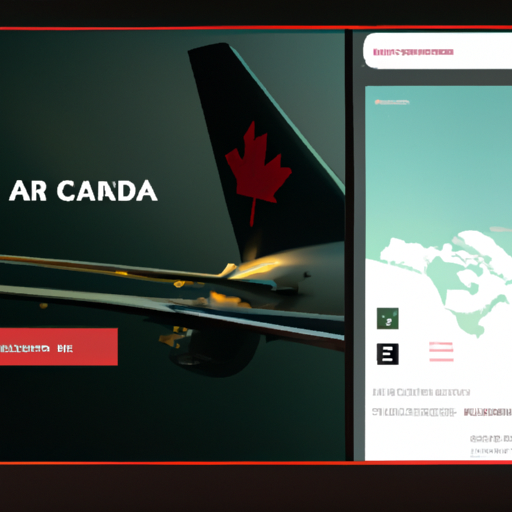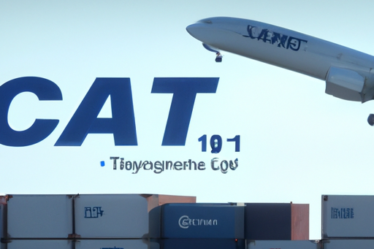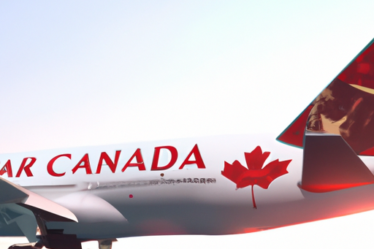
Benefits of Air Canada’s decision to eliminate distribution cost recovery for Sabre-connected travel agencies
Air Canada, one of the leading airlines in North America, has recently made a significant decision that will benefit travel agencies connected to the Sabre distribution system. The airline has announced that it will eliminate the distribution cost recovery for these agencies, a move that is expected to have several positive impacts on both the agencies and their customers.
First and foremost, this decision by Air Canada will result in cost savings for Sabre-connected travel agencies. In the past, these agencies had to bear the burden of distribution cost recovery, which was essentially a fee charged by the airline for using the Sabre system. This fee could be quite substantial, especially for smaller agencies with limited resources. By eliminating this cost, Air Canada is effectively reducing the financial burden on these agencies, allowing them to allocate their resources more efficiently.
Moreover, this move by Air Canada will also lead to increased competitiveness for Sabre-connected travel agencies. With the distribution cost recovery no longer in place, these agencies will be able to offer more competitive prices to their customers. This is particularly important in today’s highly competitive travel industry, where customers are constantly looking for the best deals. By being able to offer lower prices, Sabre-connected agencies will be able to attract more customers and gain a competitive edge over their rivals.
Another benefit of Air Canada’s decision is the improved customer experience it will bring. With the distribution cost recovery eliminated, travel agencies will have more flexibility in pricing and packaging their services. This means that they will be able to offer more customized and tailored travel packages to their customers, taking into account their specific needs and preferences. This will result in a more personalized and enjoyable travel experience for customers, as they will have more options to choose from and can select the package that best suits their requirements.
Furthermore, this decision by Air Canada will also foster stronger relationships between the airline and Sabre-connected travel agencies. By eliminating the distribution cost recovery, Air Canada is sending a clear message that it values its partnership with these agencies. This will help build trust and loyalty between the two parties, leading to a more collaborative and mutually beneficial relationship. It is a win-win situation for both Air Canada and the travel agencies, as they can work together more closely to provide the best possible travel experience for customers.
In conclusion, Air Canada’s decision to eliminate distribution cost recovery for Sabre-connected travel agencies is a significant development that will bring several benefits. It will result in cost savings for the agencies, increased competitiveness, improved customer experience, and stronger relationships between the airline and the agencies. This move demonstrates Air Canada’s commitment to its partners and its dedication to providing the best possible travel experience for its customers. Sabre-connected travel agencies can now look forward to a brighter future, with more opportunities to thrive and succeed in the highly competitive travel industry.
Impact of Air Canada’s distribution cost recovery elimination on travel agency partnerships

Air Canada, one of the largest airlines in Canada, recently announced its decision to eliminate distribution cost recovery for Sabre-connected travel agencies. This move has sparked a lot of discussion within the travel industry, as it will have a significant impact on the partnerships between Air Canada and these agencies.
First and foremost, it is important to understand what distribution cost recovery is and why it matters. Distribution cost recovery is a fee that airlines charge travel agencies for using their distribution systems to sell tickets. This fee helps cover the costs associated with maintaining and operating these systems. For many years, Air Canada has been charging this fee to travel agencies using the Sabre system, but now they have decided to do away with it.
The elimination of distribution cost recovery will undoubtedly have a positive impact on travel agencies that are connected to Sabre. By removing this fee, Air Canada is essentially reducing the cost of doing business for these agencies. This means that they will be able to offer more competitive prices to their customers, which is always a win-win situation. Travel agencies will be able to pass on these savings to their clients, making Air Canada flights more affordable and attractive.
Furthermore, this move by Air Canada is likely to strengthen its partnerships with Sabre-connected travel agencies. By eliminating the distribution cost recovery fee, Air Canada is showing its commitment to supporting these agencies and helping them thrive in a highly competitive industry. This gesture is likely to foster a sense of loyalty and trust between the airline and its agency partners, which can only lead to stronger and more fruitful collaborations in the future.
In addition to benefiting travel agencies, the elimination of distribution cost recovery will also have a positive impact on Air Canada itself. By reducing the cost of doing business for its agency partners, the airline is likely to see an increase in ticket sales. This is because travel agencies will be more inclined to promote Air Canada flights over those of its competitors, thanks to the cost advantage they now have. This increased sales volume will not only boost Air Canada’s revenue but also help solidify its position as a leading airline in the Canadian market.
It is worth noting that Air Canada’s decision to eliminate distribution cost recovery for Sabre-connected travel agencies is not without its challenges. The airline will need to find alternative ways to cover the costs associated with maintaining and operating its distribution systems. However, given the potential benefits that this move brings, it is a risk that Air Canada seems willing to take.
In conclusion, Air Canada’s decision to eliminate distribution cost recovery for Sabre-connected travel agencies is a significant development in the travel industry. It will have a positive impact on travel agencies by reducing their costs and allowing them to offer more competitive prices to their customers. This move is also likely to strengthen Air Canada’s partnerships with these agencies and increase its ticket sales. While there are challenges associated with this decision, the potential benefits far outweigh them. Overall, this is a positive step towards fostering stronger and more mutually beneficial relationships between airlines and travel agencies.
Strategies for travel agencies to adapt to Air Canada’s distribution cost recovery elimination
Air Canada, one of the leading airlines in North America, recently announced its decision to eliminate distribution cost recovery for Sabre-connected travel agencies. This move has left many travel agencies wondering how they can adapt to this change and continue to provide their customers with the best possible service. In this article, we will explore some strategies that travel agencies can employ to navigate this new landscape.
First and foremost, it is crucial for travel agencies to understand the reasons behind Air Canada’s decision. The airline has cited the need to streamline its distribution costs and improve efficiency as the primary drivers for this change. By eliminating distribution cost recovery, Air Canada aims to reduce the financial burden on travel agencies and create a more seamless booking experience for customers. Understanding these motivations can help travel agencies approach this change with a positive mindset.
One strategy that travel agencies can adopt is to diversify their airline partnerships. While Air Canada is a major player in the industry, there are numerous other airlines that travel agencies can collaborate with to offer their customers a wide range of options. By expanding their network of airline partners, travel agencies can ensure that they can still provide their customers with competitive fares and convenient travel options.
Another important strategy is to leverage technology to enhance the booking process. With the elimination of distribution cost recovery, travel agencies need to find ways to streamline their operations and reduce costs. Investing in a robust online booking system can help travel agencies automate various tasks, such as ticketing and reservation management, thereby reducing the need for manual intervention and minimizing costs. Additionally, integrating with global distribution systems (GDS) can provide travel agencies with access to a vast inventory of flights, hotels, and other travel services, ensuring that they can continue to offer their customers a comprehensive range of options.
Furthermore, travel agencies should focus on building strong relationships with their customers. In an era where online travel agencies and direct bookings are on the rise, it is crucial for travel agencies to differentiate themselves by providing personalized service and expert advice. By understanding their customers’ preferences and travel needs, travel agencies can offer tailored recommendations and create memorable experiences. This personalized approach can help travel agencies retain their customer base and attract new clients, even in the absence of distribution cost recovery.
Lastly, travel agencies should stay informed about industry trends and developments. The travel industry is constantly evolving, and it is essential for travel agencies to stay ahead of the curve. By keeping abreast of the latest technologies, market trends, and regulatory changes, travel agencies can adapt their strategies accordingly and remain competitive in the market. Attending industry conferences, participating in webinars, and networking with industry professionals can provide travel agencies with valuable insights and opportunities for collaboration.
In conclusion, while Air Canada’s decision to eliminate distribution cost recovery may pose challenges for travel agencies, it also presents opportunities for growth and innovation. By diversifying their airline partnerships, leveraging technology, focusing on customer relationships, and staying informed about industry trends, travel agencies can adapt to this change and continue to thrive in the dynamic travel industry. With the right strategies and a positive mindset, travel agencies can navigate this new landscape and provide their customers with exceptional service and value.


